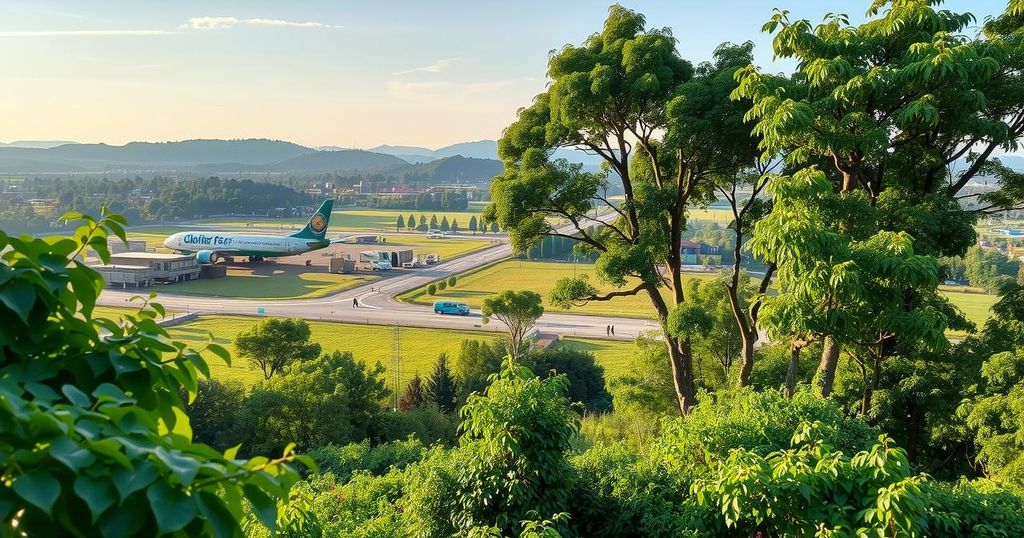Can Paul Kagame Secure His Legacy at Home and Abroad?
Paul Kagame, Rwanda’s president, aims to secure his legacy through ambitious projects like a new airport complex, funded by Qatar, despite his authoritarian rule. This move seeks to transform Rwanda’s image from its genocide past to a vibrant hub for commerce and tourism. However, questions loom about sustainability and governance amidst ongoing critiques of his leadership style.
In the lush Bugesera district, just 45 kilometers south of Rwanda’s capital Kigali, an ambitious project is in the works that reflects Paul Kagame’s vision for the nation’s future. With a population hovering around 14 million, Rwanda is poised on the brink of transformation, not just in infrastructure but in its global standing. Kagame, often regarded as a controversial figure, aims to build an airport complex financed primarily by Qatar. This endeavor is more than just transportation; it signals a shift from Rwanda’s bloody past, marked by genocide in 1994, to aspirations of becoming an African commerce hub and tourist destination, particularly for those keen to see the famous mountain gorillas.
Kagame’s ambitions include plans for Africa’s only Formula One circuit—emphasizing his desire to not only modernize but also to elevate Rwanda on the world stage. The vision is grand, indeed, but questions abound about the methods employed to achieve these goals. Critics argue that Kagame has maintained power through authoritarian means, sidelining political opposition and dissent, which raises concerns about the sustainability of this favorable image he seeks abroad.
This article, part of the ongoing narrative around Africa’s political dynamics, highlights Kagame’s dual role as a beacon of development and a controversial ruler. As Rwanda navigates its post-genocide identity, the international community watches closely, balancing their support for Kagame’s projects while critiquing his governorship. This tension reveals the complexity of modern political leadership in a region striving for progress amidst a reality of power struggles.
Moreover, Kagame’s plans encapsulate a broader trend in Africa, where leaders are striving to reshape their countries’ identities and perceptions. The aim is not just economic growth but also a rebranding of nations long associated with conflict and turmoil. However, as Kagame continues to assert his grip on Rwanda through tight control, the question remains: can he genuinely secure a legacy that stands firm both domestically and internationally? This ongoing evaluation of Kagame’s leadership serves as a reminder of the intricate balance between development and governance in Africa today.
Paul Kagame’s ambitious vision to transform Rwanda from a site of national tragedy to a commercial hub reflects both potential and paradox. While investments aim to change Rwanda’s legacy, they raise pressing questions about Kagame’s authoritarian rule and whether true progress can be achieved without inclusive governance. As he seeks to solidify his legacy, the international community remains divided between admiration for Rwanda’s growth and concerns over its political landscape. The future of Rwanda, under Kagame’s leadership, hangs in a delicate balance between aspiration and reality.
Original Source: www.economist.com




Post Comment